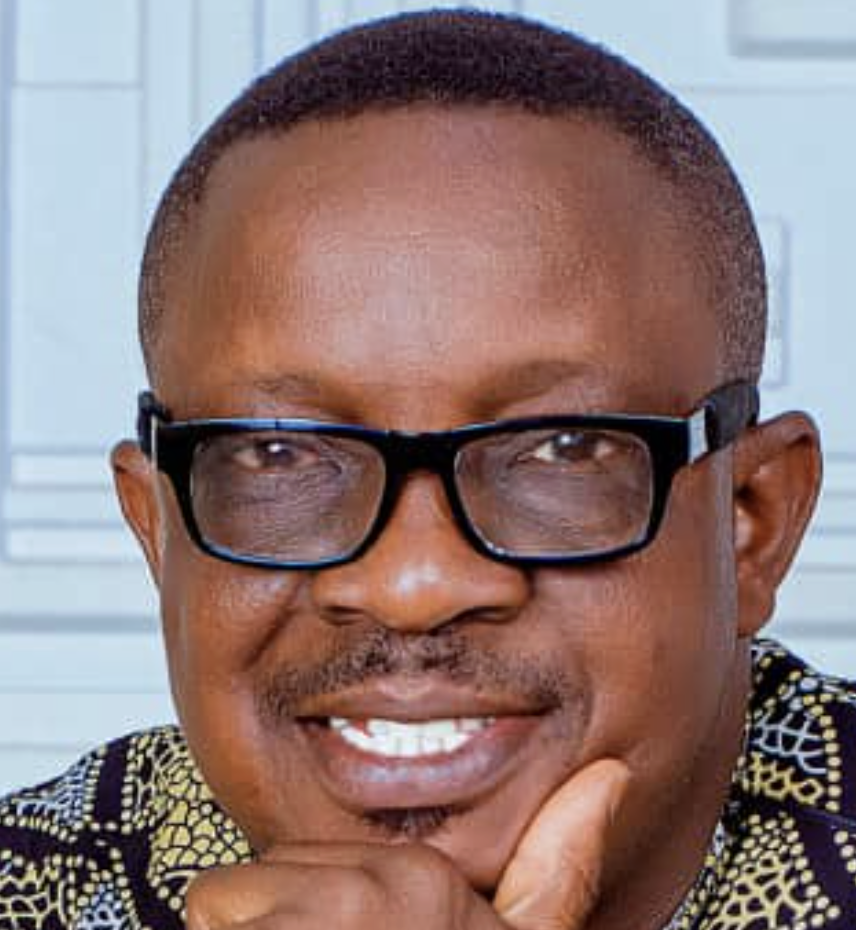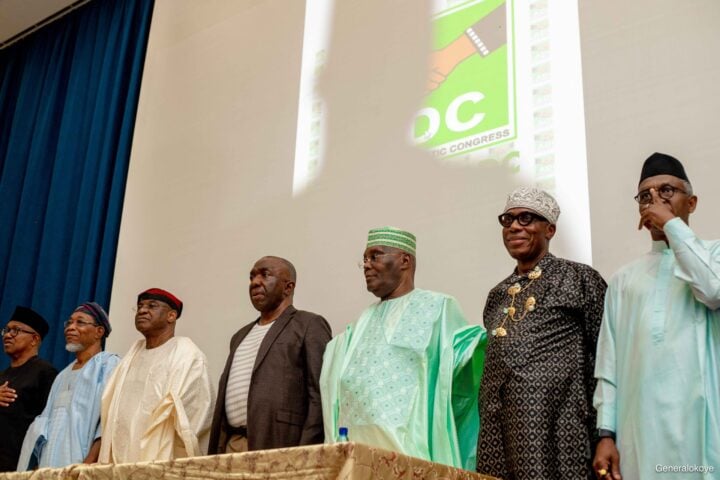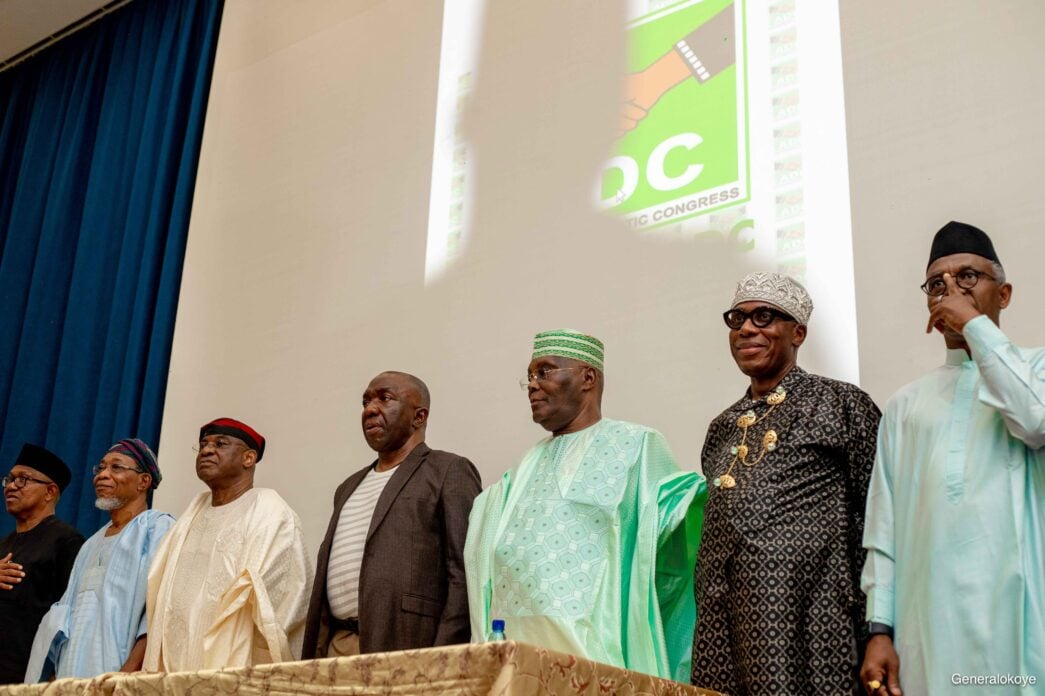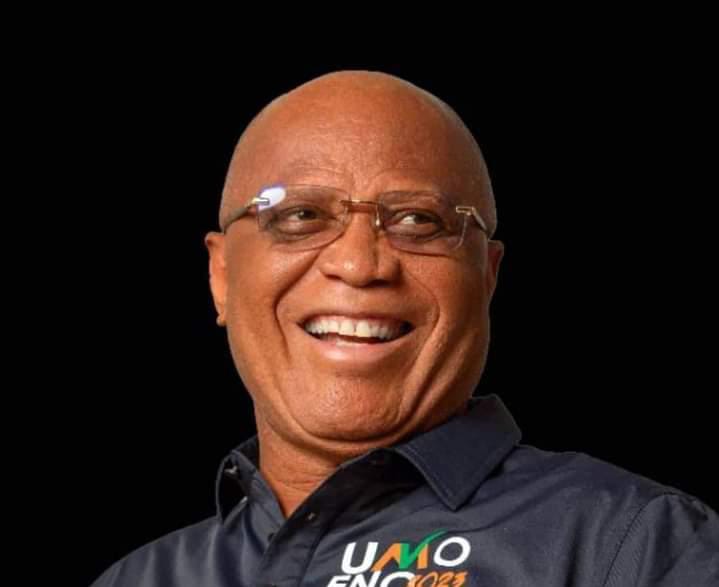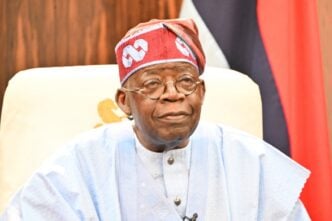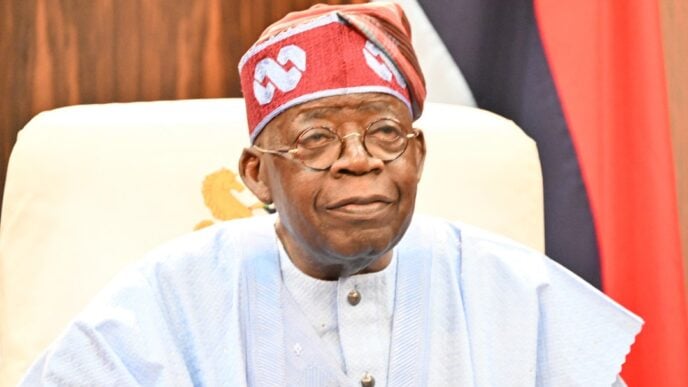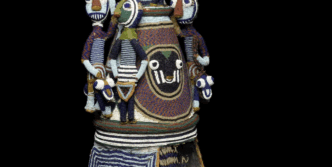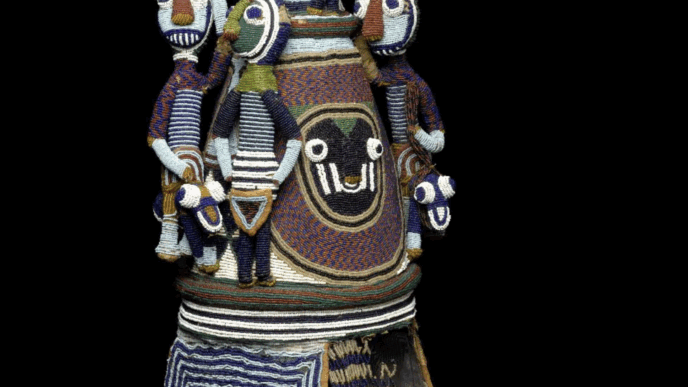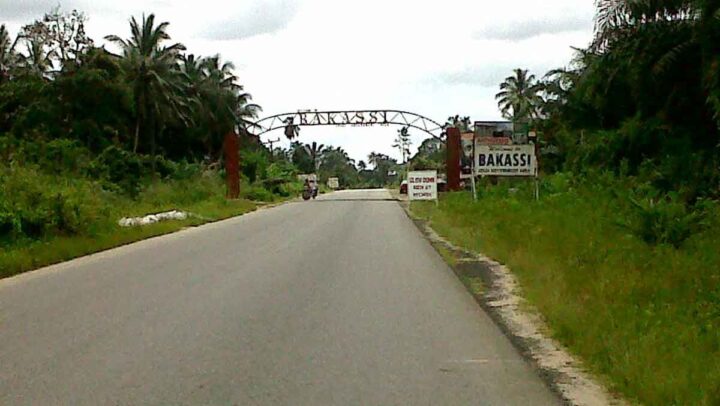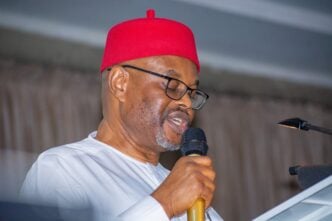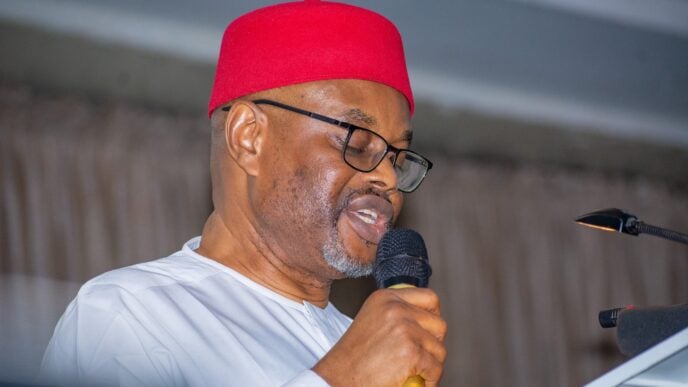L-R: Peter Obi, Rauf Aregbesola, David Mark, Ralph Nwosu, Atiku Abubakar, Rotimi Amaechi and Nasir el-Rufai
In the world of Nigerian politics, where allegiances are as fleeting as the wind, the African Democratic Congress (ADC) has emerged as a party of strange bedfellows. The marriage of convenience between politicians from different hues of the political spectrum has raised eyebrows, with many wondering if this unlikely alliance will hold or implode before the next election cycle.
At first glance, the ADC’s formation seemed like a breath of fresh air, a potential powerhouse of opposition that could challenge the ruling All Progressives Congress (APC). However, a closer look reveals a party driven by personal interests rather than a shared ideology or vision. The glue that holds them together is fragile, and the winds of discord are already whispering in the ears of these unlikely bedfellows.
The ADC’s leadership, currently embroiled in a court battle, seems more focused on power struggles than building a robust opposition. David Mark and Rauf Aregbesola’s recognition as the party’s leaders has been challenged, and the internal squabbles are already making headlines. This is not exactly the foundation one would hope for when building a party meant to challenge the APC’s dominance.
Meanwhile, rumors are swirling about new parties brewing within the opposition, potentially poaching members from the ADC. It’s a case of “before they even take off, they’re already crashing.” The implications are ominous: a fractured opposition, a weakened voice against the ruling party, and the very real possibility of Nigeria sliding into a one-party state.
Advertisement
My own unfortunate party, the People’s Democratic Party (PDP), once a formidable force, seems to be on its last legs. The party’s internal crises have left it three-quarters dead, with the remaining quarter in a coma, being nursed back to life by a dwindling group of stalwarts. I’ve worked with passion, having served various times in its Gubernatorial Media Committee in four different elections and on the National Media team in the last presidential bid of Mr. Abubakar Atiku. Those of us who remain in the party know we’re operating in a challenging environment.
The PDP’s fate is a cautionary tale for the ADC, a reminder of what happens when personal interests trump collective purpose. As Nigeria hurtles towards the 2027 elections, one wonders if the opposition will regroup and mount a credible challenge to the APC. The deal between President Tinubu and Mr. Wike, rumored to be in the works, may yet hit the rocks between 2030 and 2031, potentially breathing new life into the PDP’s dying embers. Until then, the ADC’s implosion and the PDP’s slow march to oblivion seem set to continue.
In the end, Nigeria’s democracy might just become the biggest casualty of this political brinkmanship. As the saying goes, “those who do not learn from history are doomed to repeat it.” Will the ADC and PDP learn from their mistakes, or will they continue down the path of self-destruction? Only time will tell.
Advertisement
As the political landscape shifts, one thing is clear: Nigeria’s opposition parties need to rethink their strategies and find a way to unite against the ruling APC. The alternative is too dire to contemplate – a one-party state where the voices of the people are silenced, and the government reigns supreme. The ADC’s fate serves as a warning: when personal interests trump collective purpose, the result is often chaos and irrelevance.
As the 2027 elections loom, Nigeria’s politicians would do well to remember that their actions will shape the future of the country. The African Democratic Congress’s future hangs in the balance, a house of cards waiting to collapse under the weight of its own contradictions.
There are ominous signals that President Tinubu’s former adviser, Dr. Aliyu Audu, is trying to create an alternative to the APC. Audu recently submitted a formal registration request to the Independent National Electoral Commission (INEC) to register a new party called the African Renaissance Congress (ARC). This move is seen as a potential challenge to the APC in the 2027 election. Additionally, there’s another group led by anti-Tinubu coalition members, including Atiku Abubakar, Rotimi Amaechi, and Nasir El-Rufai, who are seeking to register the All Democratic Alliance (ADA) party. These developments might indicate a shifting landscape in Nigerian politics.
When opposition is fragmented, they become a collection of earthworms, waiting only for a pinch of salt to knock them together into lifelessness. As the party’s internal struggles play out, Nigerians can only hope that the ADC will find a way to overcome its differences and present a united front against the APC. Otherwise, the country’s democracy might just become the latest casualty of political ambition and greed.
Advertisement
As for my party, the PDP, the party will remain in the refrigerator until things fall apart between Wike and Tinubu. I see it coming. after the 2027.
For me, and other who hate jumping from party to party, we will remain inside this dead shell, until a real opposition, that is based on refined ideology is born.
Ajileye is a clergyman, political activist, and media/political relations consultant.
Views expressed by contributors are strictly personal and not of TheCable.
